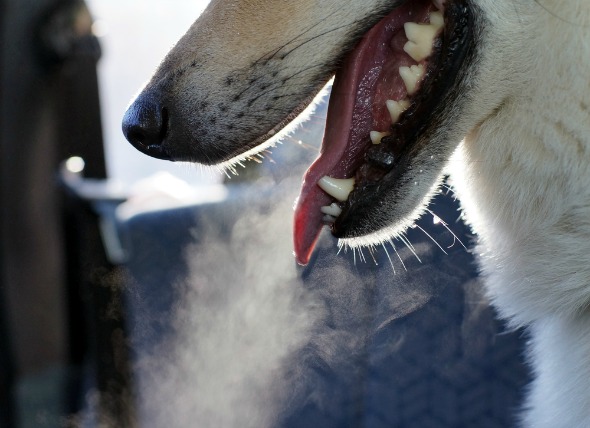

Anaphylaxis is an emergency condition that occurs when an animal reacts adversely to a particular allergen. In extreme situations, this reaction can be fatal. The condition is fairly unpredictable, as almost any substance can potentially cause a reaction. The expected outcome is often good if the reaction is caught early and treatment administered.
The condition or disease described in this medical article can affect both dogs and cats. If you would like to learn more about how this disease affects cats, please visit this page in the PetMD health library.
Symptoms of a severe allergic reaction include shock, trouble breathing, vomiting, urination, and trouble controlling their bowels. The onset can be quick, often within minutes of exposure to the allergen.
Virtually any environmental or ingested substance can cause anaphylaxis in dogs. Causes may include insect stings, drugs, or food. If the animal comes into contact with a severe allergen, their body typically reacts in a severe way to the exposure. The reactions can be localized or throughout the entire body of the animal. A serious trauma can also cause this type of reaction.
A dog's reaction to an allergen is rapid, and there are no current tests to determine whether a dog will be susceptible to a certain stimulus. However, some skin allergen tests can be done for many common allergens if believed they are at the root of the problem. A severe reaction is considered a medical emergency and often requires hospitalization.
It is important to remove the agent causing the reaction. Sometimes a vaccine is helpful if the allergen is identified. Life support is sometimes required, as well as opening an airway so the animal can breathe properly. In addition, fluids are often administered to reduce the animal's shock levels and to hydrate. Drugs like epinephrine are often given if the shock is severe, and antihistamines can be prescribed to help with on-going control of the allergy. The dog often requires close hospital monitoring for 24 to 48 hours after the reaction.
If it is discovered the allergic reaction was due to food, or an otherwise common allergen, efforts must be made to control the dog’s environment. As many cases are sudden, the owner will be educated so a future emergency can be managed effectively.
There are no known ways to prevent an initial reaction, but once the allergen is identified, it can be controlled by the dog's owner.
 Perineal Hernia in Dogs
When the muscles in the pelvic diaphragm of an an
Perineal Hernia in Dogs
When the muscles in the pelvic diaphragm of an an
 Miscarriage in Dogs
Spontaneous Abortion and Pregnancy Loss in Dogs
T
Miscarriage in Dogs
Spontaneous Abortion and Pregnancy Loss in Dogs
T
 Amphetamine Poisoning in Dogs
Amphetamine Toxicity in Dogs
Amphetamines are a p
Amphetamine Poisoning in Dogs
Amphetamine Toxicity in Dogs
Amphetamines are a p
 Paralysis in Dogs
Loss of Body Movement in Dogs
A dog’s abili
Paralysis in Dogs
Loss of Body Movement in Dogs
A dog’s abili
 Acute Vomiting in Dogs
Sudden Onset of Vomiting in Dogs
It is not
Acute Vomiting in Dogs
Sudden Onset of Vomiting in Dogs
It is not
Copyright © 2005-2016 Pet Information All Rights Reserved
Contact us: www162date@outlook.com